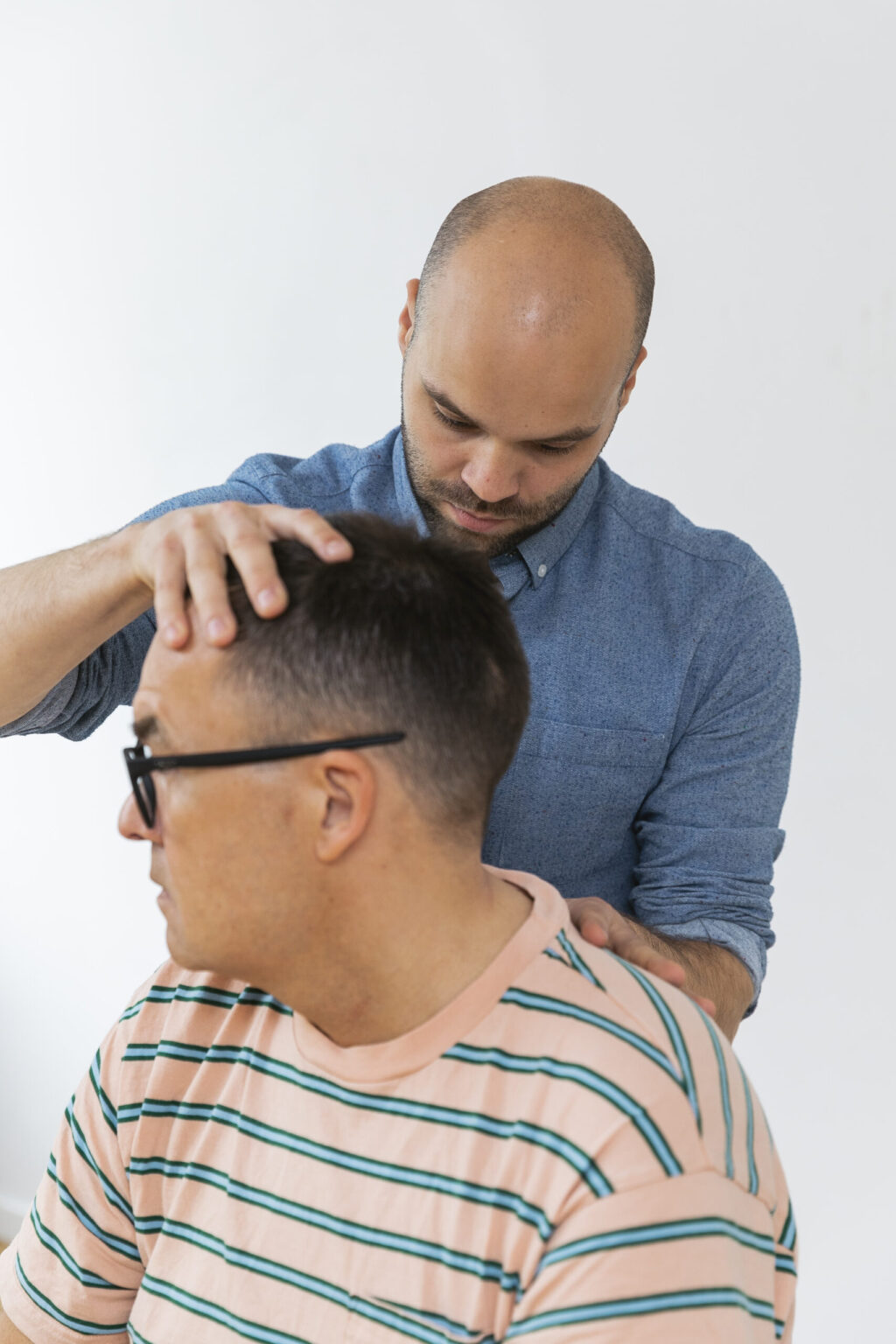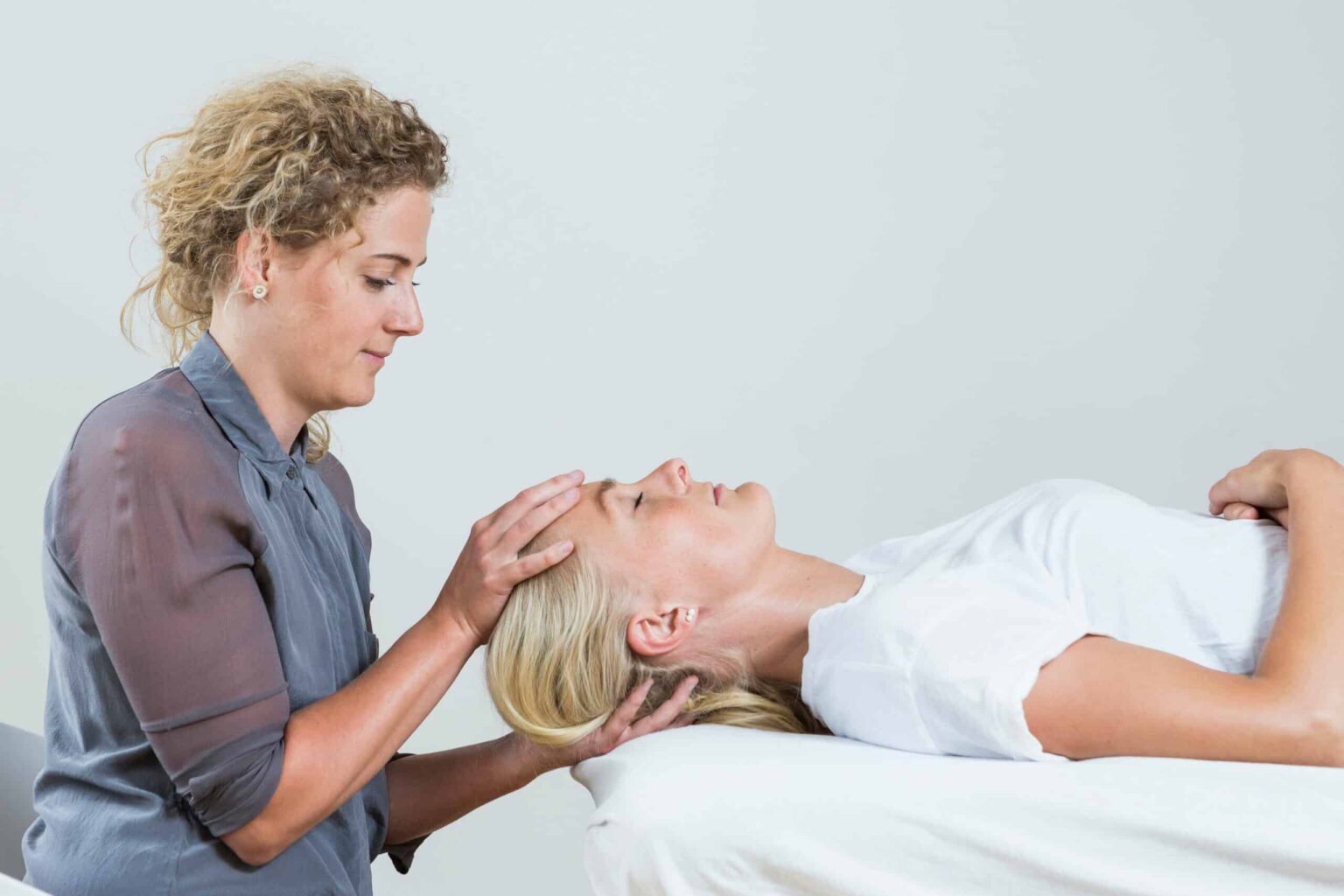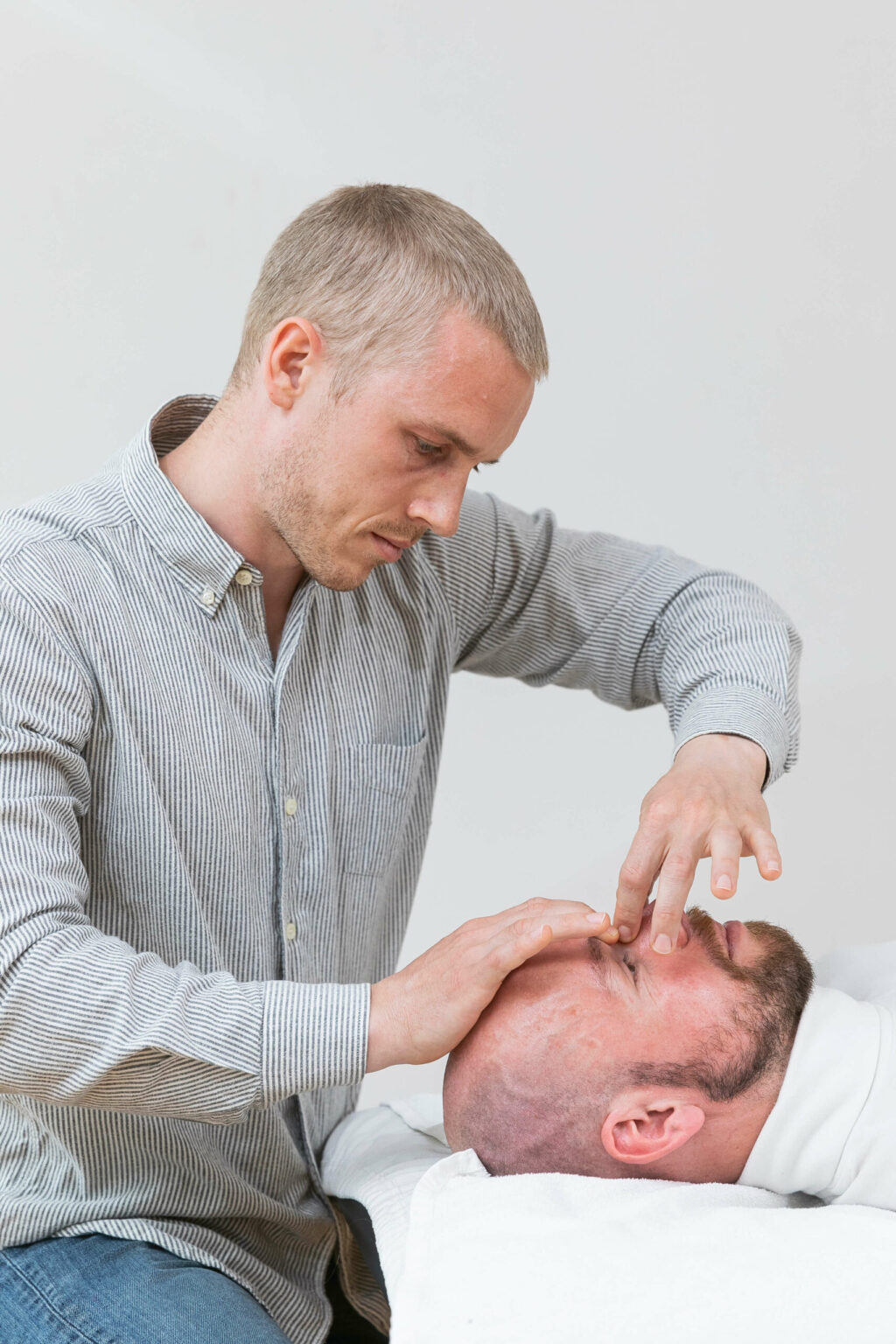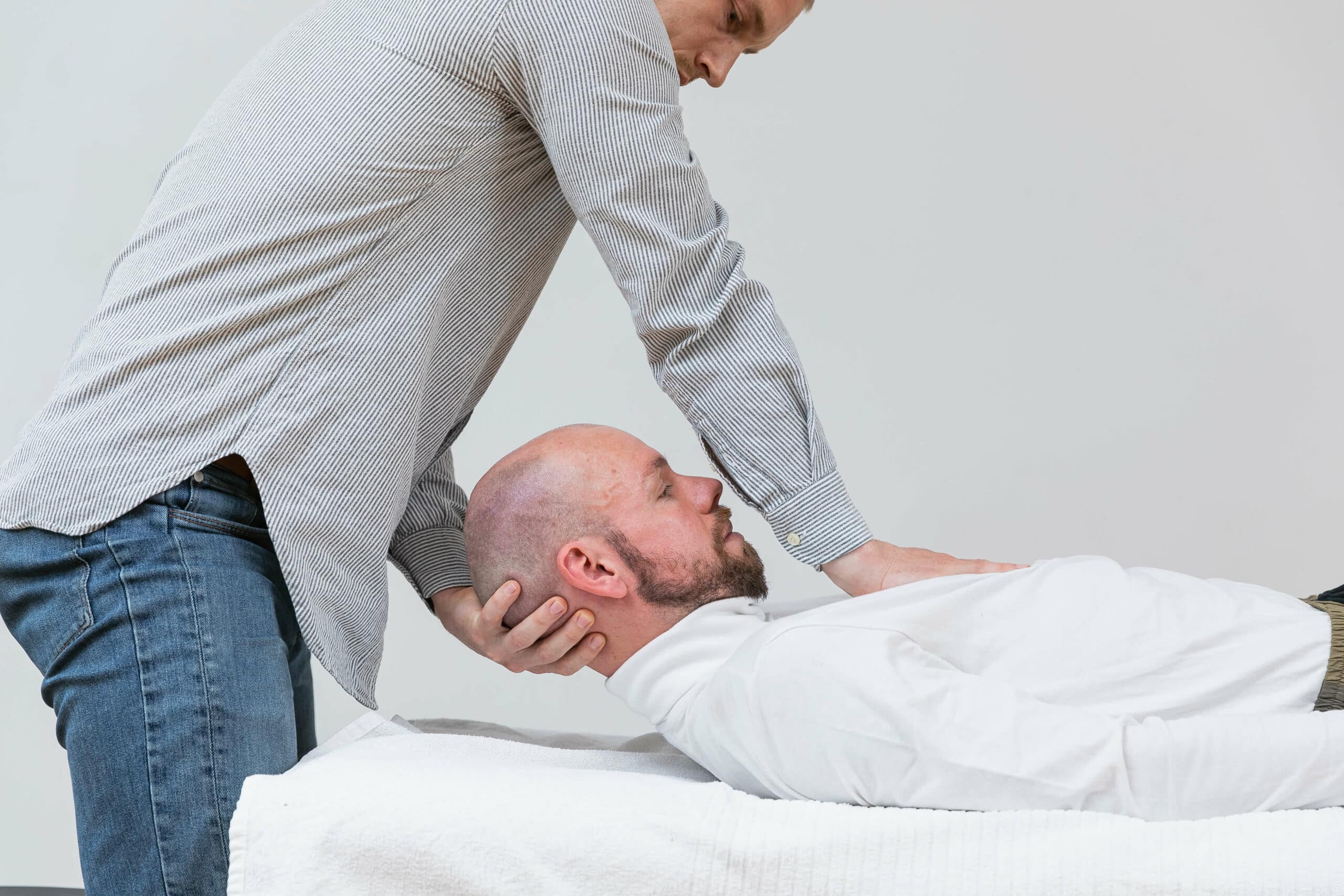We treat
Maxillary sinusitis
Causes of inflammation in the maxillary sinus. What does it feel like and what can you do yourself?
What is maxillary sinusitis?
The maxillary sinuses are a system of “cavities” in the skull around the nose. They function as part of our immune system by filtering bacteria, viruses and pollen, using the mucus in the mucous membranes in the maxillary sinuses. Overall, we have 3 “cavities” in the face that help with this. The maxillary sinuses, the ethmoid sinuses, and the frontal sinuses. These 3 cavities are collectively referred to as the sinuses. The maxillary sinuses specifically are the ones that sit between the eyes and the upper mouth.
Jump to section [Show]
Symptoms of maxillary sinusitis
With maxillary sinusitis, you have an irritation in the maxillary sinuses, which can typically manifest as a stuffy nose, pain in the face near the eyes, around the cheekbones, upper mouth, or as a headache. It will rarely only be the maxillary sinuses that are affected, but typically the sinuses as a whole.
How long does maxillary sinusitis last?
How long a sinus infection lasts depends on the cause. The most common causes of this will be sinusitis as a result of a cold or flu. This will typically last 7-10 days.

Causes of maxillary sinusitis
Sinusitis can occur acutely as a result of a cold or flu. The problem occurs when the mucous membrane in the maxillary sinus becomes inflamed, which leads to congestion and constipation. The constipation now exacerbates the problem, as there will be less circulation and a buildup of waste products, which in themselves can cause irritation and inflammation.
Difference between maxillary sinusitis and sinusitis
The maxillary sinuses are part of the cavities in the skull that are collectively referred to as the sinuses. Most often, an inflammatory or irritating condition will most often affect the sinuses as a whole. In rare cases, however, isolated maxillary sinusitis can occur as a result of an inflammation of the tooth roots in the upper jaw, which spreads to the maxillary sinus. This will typically only be experienced on one side.
Source: apoteket.dk
Treatment of maxillary sinusitis
Treatment of maxillary sinusitis depends on the cause. In the acute phase of an active inflammation such as a cold, you can use nasal sprays to relieve symptoms of congestion, and/or rinse with a saline solution. In case of fever or other signs of illness, it is recommended to see a doctor.
Source: min.medicin.dk

Osteopathic treatment of maxillary sinusitis
The osteopathic approach to treating maxillary sinusitis will always be individually tailored to the individual patient.
Overall, you will work on supporting the immune system by optimizing it as much as possible, and reducing other stressors as much as possible. Both physical, chemical, and emotional.
Locally, it is possible to examine and treat the individual sutures and bones in the skull, and thus optimize mobility around the sinuses. If there is a loss of mobility, such as after a previous trauma to the face (for example, a fall, a blow, wisdom teeth pulled out, etc.), there will always be a small loss of function. Even if the trauma is many years old. This is because after a trauma, there will subsequently be an inflammatory process in the area to heal the damage. The body can basically handle this on its own, but the tissue that remains afterwards will be a little stiffer and less elastic than before the trauma. This may be one of the reasons why you are exposed to the same problem again and again, for example, maxillary sinusitis on the same side.
Good advice for maxillary sinusitis
Good advice for a weakened immune system and maxillary sinusitis
- Drink plenty of water. This helps the mucous membranes.
- Vitamins, minerals, fish oil and possibly lactic acid bacteria (for the intestinal flora and mucous membranes)
- Limit too much lactose, gluten and starch
- Make a large part of your diet with vegetables
- Lie with your head elevated. This makes the pressure in the sinuses more beneficial.
- Reduce stress and prioritize sleep
- Hygiene
- Breathe in steam or moisture. This helps drain sinuses.
- Nasal spray or nasal irrigation. This helps with ventilation in the sinuses.
Source: Apopro.dk

Often related problems

Jaw joint pain

Brain hemorrhage

Post-traumatic headache

Sinusitis

Tinnitus

Vestibular dysfunction

Maxillary sinusitis

